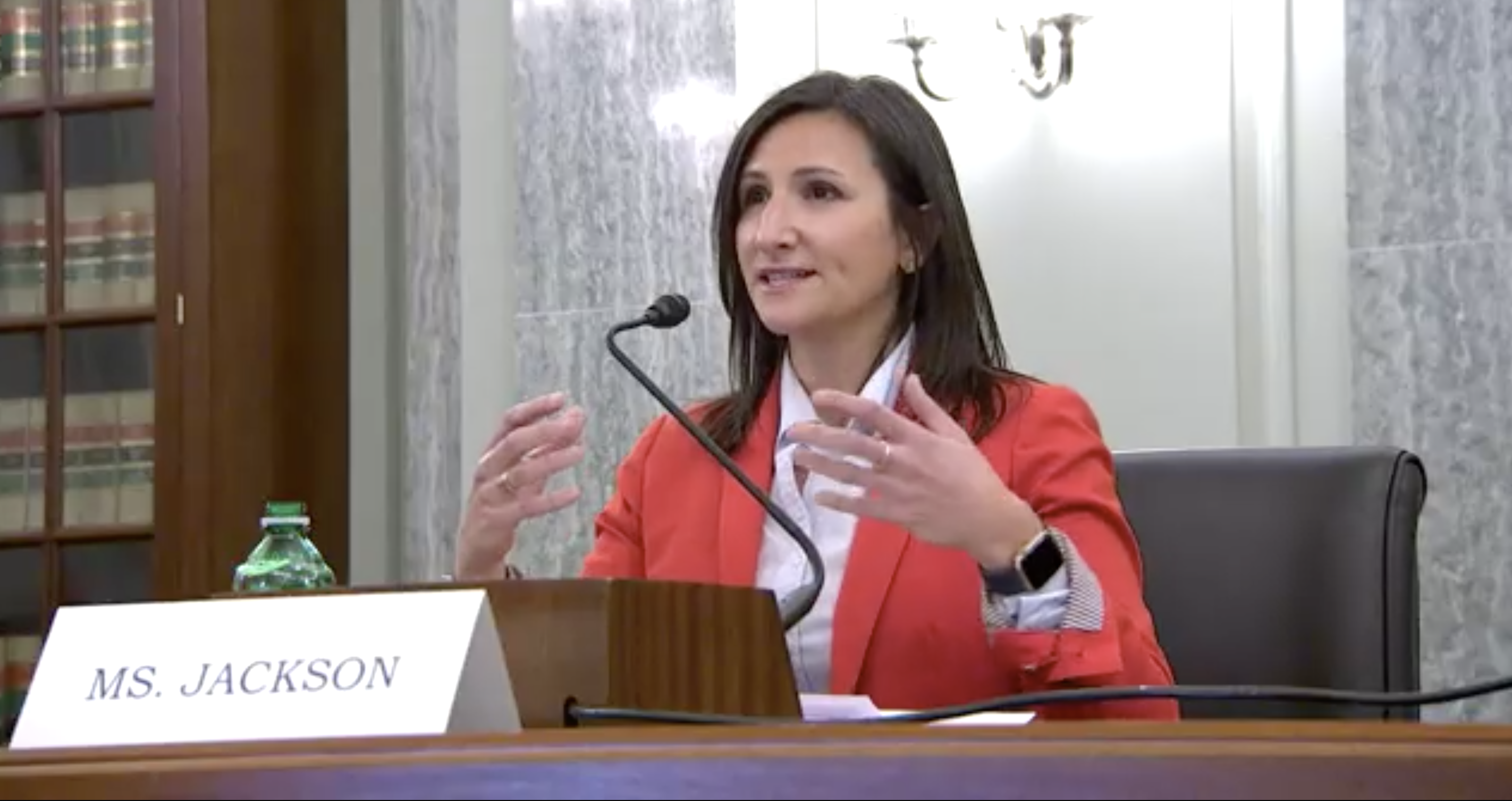Democracy + Tech Initiative Director Rose Jackson Testifies to Senate
Rose Jackson, Director of the Atlantic Council’s Digital Forensic Research Lab (DFRLab)’s Democracy & Tech Initiative testified to the Senate Subcommittee on Communications, Media, and Broadband’s Thursday hearing on Disrupting Dangerous Algorithms: Addressing the Harms of Persuasive Technology.
Democracy + Tech Initiative Director Rose Jackson Testifies to Senate

WASHINGTON, DC – December 10, 2021 – Rose Jackson, Director of the Atlantic Council’s Digital Forensic Research Lab (DFRLab)’s Democracy + Tech Initiative testified to the Senate Subcommittee on Communications, Media, and Broadband’s Thursday hearing on Disrupting Dangerous Algorithms: Addressing the Harms of Persuasive Technology. The hearing focused on, “… legislative solutions that address the dangers of online platforms’ use of technology to manipulate user experiences.”
Key takeaways from Jackson’s testimony include:
- If we want the human rights that protect us in the offline world to also protect our online lives, Congress, the White House, and the rest of the government must develop a comprehensive, strategic, and rights-based approach to tech governance.
- The internet is global and so too must be our approach to ensuring its democratic and pro-human rights. We must coordinate with other countries, tech companies, experts, and activists in civil society, and most especially the vulnerable communities at home and abroad who face the most risk.
- We must start legislating data and privacy protection laws. By not taking a position, the U.S. is ceding one of the most significant expressions of power in our modern era to other countries, including China.
- Over-indexing on the idea that these algorithms are perfect can cause harm too. If we think they are infallible then we might be tempted to defer to them on consequential matters like whether you’re granted a loan or given a certain criminal sentence.
- Transparency is a means, not an end, and it cuts across every topic related to tech governance. “Transparency’ is a red herring if it is not accompanied by a clear and fair process, and accountability.
Jackson testified alongside:
- Ms. Jessica J. González, Co-CEO, Free Press
- Dr. Dean Eckles, Associate Professor of Marketing, MIT Sloan School of Management
- Mr. James Poulos, Executive Editor of the American Mind, The Claremont Institute
Jackson’s testimony comes on the heels of the DFRLab’s 360/StratCom, its annual government-to-government forum, this year held on the margins of the Summit for Democracy. This year, the DFRLab welcomed leaders of civil society and private industry, government officials, and activists from around the world and covered the right to information, protecting an open digital world, supporting democratic movements in authoritarian states, and more.
The Democracy + Tech Initiative creates policy practices that align global stakeholders toward tech and governance that reinforces, rather than undermines, open societies. It builds on the DFRLab’s established track record and leadership in the open-source field, empowering global communities to promote transparency and accountability online and around the world. The Initiative examines how the tech that connects and informs people is funded, built, and governed, and how that affects the viability of rights-respecting and democratic societies around the world.
The Atlantic Council’s Digital Forensic Research Lab is an action-oriented center producing timely research, driving policy change, and building a global coalition dedicated to ensuring human rights, transparency, and accountability in our global information ecosystem.
For further questions, please reach out to dfrlab@atlanticcouncil.org.
###

